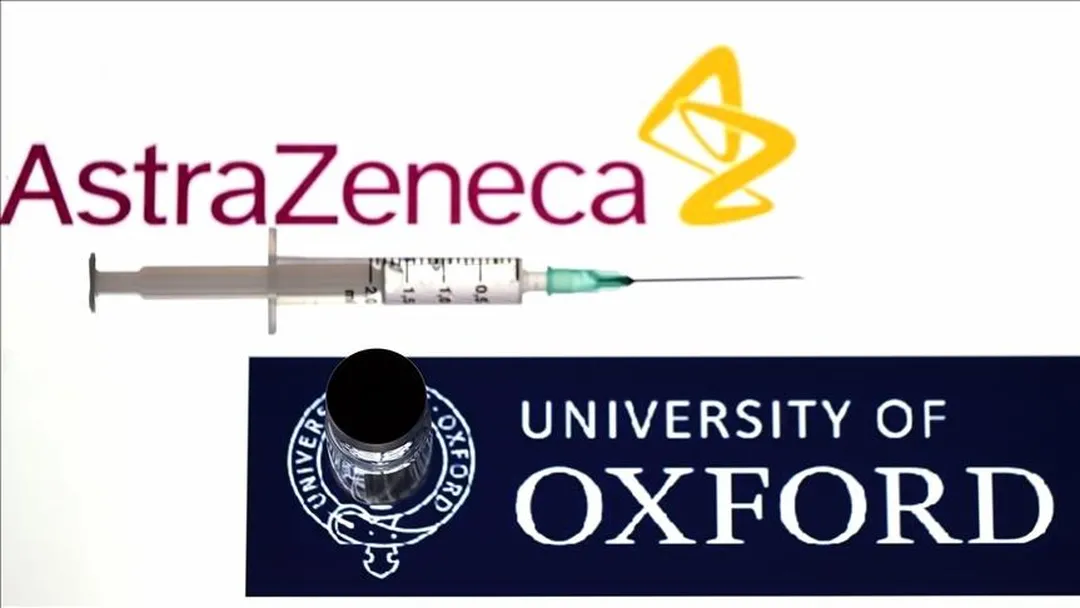Oguz Kaan Kısa · April 19, 2021

Prof. Sarah Gilbert, Prof. Andrew Pollard, Prof. Teresa Lambe, Dr. Sandy Douglas and Prof. The Oxford team, led by Adrian Hill, is one of the earliest to begin vaccine development. On January 11, 2020, that is, a few days after the genetic makeup of the virus was announced. They know coronaviruses well. Because Prof. Gilbert and his team previously developed a vaccine for Middle East Respiratory Syndrome (MERS), another human coronavirus disease, which showed promise in early clinical trials. They continue their studies at the Oxford Jenner Institute. In a sense, the memory of the inventor of the vaccine is their roof.
Oxford University has partnered with AstraZeneca to develop and test a coronavirus vaccine known as ChAdOx1 nCoV-19 or AZD1222. The Oxford group is very experienced in vaccine development and corona viruses. But AstraZeneca, a partner of the British-Swedish pharmaceutical company, is not known to work in vaccines, but a large company is known for drugs that treat cancer, asthma and other chronic conditions.
On December 11, 2020, AstraZeneca announced that it will cooperate with the Russian creators of the Sputnik V vaccine, also made from adenoviruses. The two teams will combine their vaccines to see if they offer stronger protection than they did on their own. The trial is expected to begin later this month.
As of May, AstraZeneca has signed a series of agreements to provide vaccines to governments if they are effective. The United States gave the project $ 1.2 billion for 300 million doses. In August, the European Union reached an agreement for AstraZeneca to deliver 400 million doses if the trials were successful. COVAX, an international collaboration to deliver the vaccine evenly around the world, secured 170 million doses. The company said that if approved, the total annual production capacity for the vaccine would be two billion doses. Each vaccinated person will need two doses at an expected price of $ 3 to $ 4 per dose.
This vaccine was the most promising in the early stages of the pandemic. Since it is a very experienced group, the initial processes progressed rapidly. Phase 1/2 trial began in the UK in April. The AstraZeneca partnership followed immediately. Phase 2/3 started in the UK in May and Phase 3 in June in Brazil. The USA joined it in August. Different Phases were being studied here in other countries: South Africa, Japan, India.
Saying that everything is going well, a suspected side effect was seen in a British volunteer on September 6. There was no explanation for 2 days. As a result of the investigations that lasted until September 12, it was decided to continue the study in the UK. In this process, the US has stopped work. There was a mutual disclosure process between the vaccine group and the FDA for about 46 days. While AstraZeneca complained that the assessments were getting too long, the FDA stated that the documents provided to them were incomplete and therefore delayed. Meanwhile, some volunteers had been vaccinated and the second dose had already passed. On October 23, a decision was made to continue in the USA.
On November 19, researchers published the first findings from Phase 2/3 trials in the UK. In particular, they looked at how people of different ages react to the vaccine. They have not observed any serious side effects at any age. Encouragingly, older volunteers have produced as many antibodies to the Coronavirus as younger ones. 23 November AstraZeneca announced clinical trial data showing that the first half dose of the vaccine appeared to be more effective than a full dose. But the irregularities and omissions raised many questions about the results. A Phase 3 interim review was published as a scientific paper on 8 December, including the conclusions raised by the company on 23 November.
On December 7, the Serum Institute of India announced that it has applied to the Indian government for emergency use of the ChAdOx1 vaccine. In India, the vaccine is known as "Covishield". Now, the assessment result is awaited by the Indian General Drug Controller (DCGI) responsible for approving the licenses of certain drug categories such as blood and blood products, IV fluids, vaccines in India.
Oxford-AstraZeneca vaccine will not be given to anyone under 30 in the UK
It was reported that 79 people had blood clots after receiving the Oxford-AstraZeneca vaccine, and 19 of them died.
In the UK, Pfizer or Moderna's vaccines will be made to replace the Oxford-AstraZeneca's new type of coronavirus (Kovid-19) vaccine, which is considered to cause blood coagulation in those under 30.
The Medicines and Healthcare Products Regulatory Authority (MHRA) stated that the Oxford-AstraZeneca vaccine still has great benefits in preventing serious diseases.
In the statement, which was announced that 79 blood clotting cases were reported until 31 March and 19 of these people died, it was emphasized that it was not determined what caused the blood clotting.
It was announced that the ages of the cases, 51 women and 28 men, ranged between 18-79, and 3 of the 19 people who died were under the age of 30. It was reported that 14 of 19 deaths had blood clots in the brain and 5 of them in the veins.
Following the MHRA's statement, the Vaccine Committee announced that Pfizer or Moderna vaccines will be offered to those under the age of 30 due to the blood clot seen in young people. It was stated that those who received the first dose of the Oxford-AstraZeneca vaccine could have the second dose of the same vaccine.
It is noted that more than 20 million AstraZeneca vaccines have been administered in the UK.
Some European countries have suspended or limited the use of the vaccine on the grounds that it causes blood clotting.

 Back
BackLet us find your dream university.
